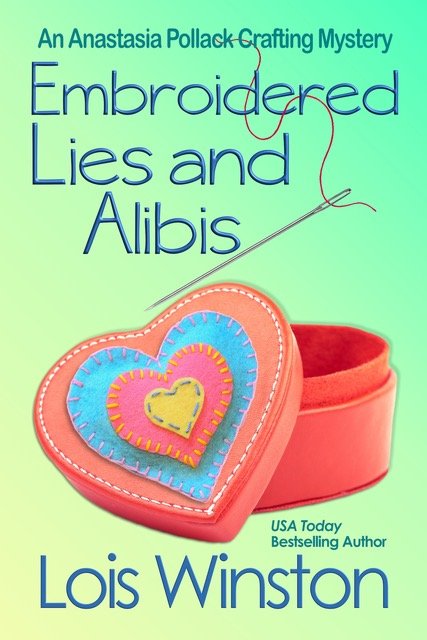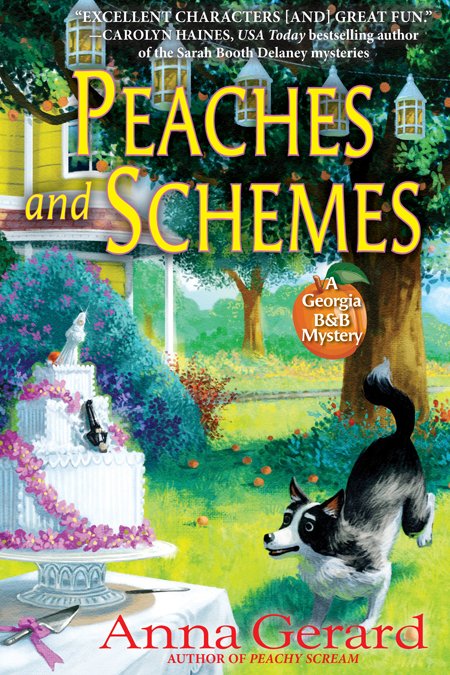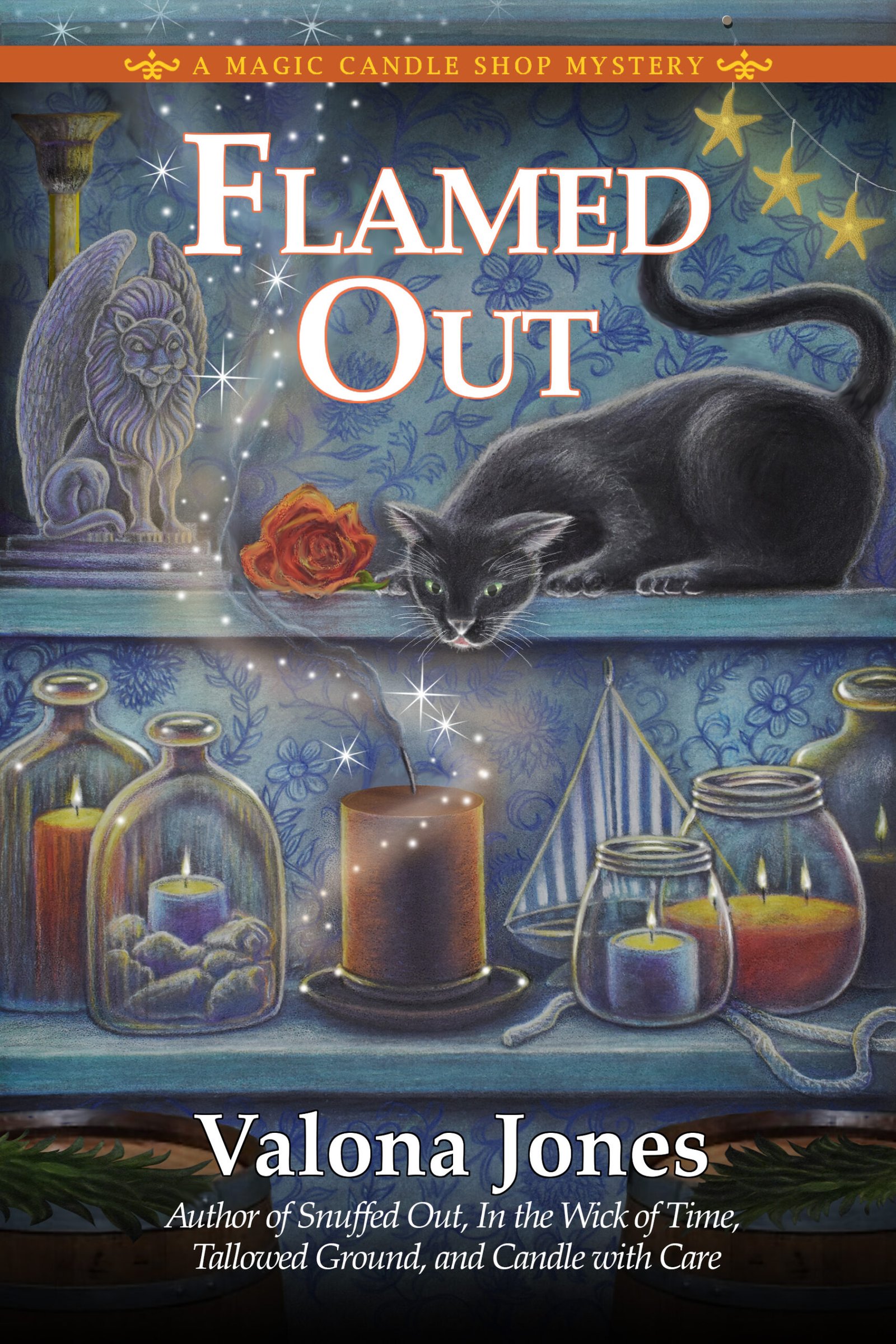Let’s Talk with Terry Odell
What’s in a Name?
 Naming characters has always been a problem for me. I seem to fall into ruts, using the same names over and over. In fact, in my book, What’s in a Name?, I named three characters “Hank” and the editor never caught it. It wasn’t until I got the rights back, and went through the book using a system I learned from the late Jeremiah Healy, that I discovered the mistake. These were all minor characters, and I didn’t get mail from readers, so maybe they didn’t notice. However, since then, I’ve made a point of tracking all my named characters. It’s very simple. I create a table with the letters from A-Z for last names, and another one for first names. When I name a character, I fill in the slots in the table. When I need a name, I look to make sure I don’t have too many names starting with that letter.
Naming characters has always been a problem for me. I seem to fall into ruts, using the same names over and over. In fact, in my book, What’s in a Name?, I named three characters “Hank” and the editor never caught it. It wasn’t until I got the rights back, and went through the book using a system I learned from the late Jeremiah Healy, that I discovered the mistake. These were all minor characters, and I didn’t get mail from readers, so maybe they didn’t notice. However, since then, I’ve made a point of tracking all my named characters. It’s very simple. I create a table with the letters from A-Z for last names, and another one for first names. When I name a character, I fill in the slots in the table. When I need a name, I look to make sure I don’t have too many names starting with that letter.
But it’s coming up with the names in the first place that challenges me. From time to time, I’ll post a “help me” plea on Facebook, and get suggestions that way. A lot of those who offer to help want to know all sorts of things about the character first, such as age and ethnicity. In this melting pot we live in, a real live person’s name might not match their heritage, however. People change their names for professional reasons. A woman might take her husband’s name when she marries. When people of my parents’ generation came to the US, often their names were changed into simpler ones at their point of entry. So, a name may or may not reflect the background of a person, but someone reading a book gets a visual based on the name of the character.
Case in point. I recently read a book set in Italy, and there was a prominent character named Fabio. My gut reaction was why would the author do that? It might be a common enough name in Italy, but that’s a name with an immediate image and impression, and if it doesn’t fit the character, your readers are probably not going to accept that your character doesn’t look like “the” Fabio. In fact, odds, are, they’re going to be thinking of the cover model instead of your character.
Who would you picture if you saw the name Keisha? My daughter invited a friend with that name over to the house when she was in high school. Would it surprise you at all to see she was a blue-eyed blonde?
You also don’t want names that look or sound the same. Reading is a visual experience, and readers tend to go quickly over names, so having Mick, Mack, and Mike in a book will confuse them. In fact, it’s recommended that you don’t use the initials of your main character(s) for anyone else in the book. Not always possible, but it’s another thing to consider.
I’ve been working on a new romantic suspense series, which means I have a lot of new characters to name. I checked my chart and realized I’d used Tanya, so the character I’d planned to name Tina needed a name change. I decided on Rena. So far so good. But then my hero needed a name for his horse, and I named it Reno without checking my chart first. After all, it was a horse, not a person. But Reno and Rena? Nope. My cowboy now rides Zephyr. And to add another layer of complication, the “Rena” is named after someone I know by that name, but she pronounces it “Renae”. Readers, however would probably “hear” Rena as Rina, which then rhymes with the heroine’s name of Sabrina. For me, names are always in flux.
I’ve got two prizes this time. One winner will get a copy of What’s in a Name? (the new version, not the one with 3 Hanks!), and another will get to name a character in my new book.
What’s your take on character names? Any books where the names were stumbling blocks?
Name a Character/Win a Book
Fine Print:
No purchase is necessary. You must be at least 18 years old to enter. By submitting your entry, you agree to be entered into each Booklover’s Bench author’s email newsletter list. We will not share your information with anyone else, and you may unsubscribe at any time.
Winners will be chosen by Rafflecopter from all entrants for the prize. Winners will be notified by email. Bookover’s Bench authors are not responsible for transmission failures, computer glitches or lost, late, damaged or returned email. Prizes must be claimed within 5 days or they will be forfeited.
Posted in Let's Talk, with Terry Odell, zed: Former Authors • Tags: BLB Discussion, contest, giveaway, Let's Talk, Terry Odell, What's in a Name? | 23 Comments







Names don’t usually bother me unless as you say they are all too similar and I can mix characters up. Sometimes it seems you can almost tell the genre by the names — romance has the Fabio types, police procures have the tough guy names, and I’ve noticed lately in cozy mysteries a lot of young women (and sometimes men) have names that are a little too cutesy for my taste. Almost sound like high school nicknames
So true, Sally. A good piece of advice from a writing instructor was, “It should sound like your characters’ parents named them, not you.”
The only time a name bothers me is when I can’t pronounce it!
One of my crit partners writes fantasy, and I can’t keep any of those names straight. For his last manuscript, he replaced all his ‘otherworldly’ names with similar English counterparts just so we could critique it more easily. (Of course, he changed them back when he was ready to publish)
I always lean toward the same names, as if I have a mental block to all the hundreds and thousands of other names I could use!
Yep — That’s why the spreadsheet helps, although I still think of ‘old’ names and it’s not until I look at my spreadsheet that I see I’ve used them. I’m trying to group all the names from each series into the same spreadsheet.
I received the same naming advice from Jerry!
When I’m stuck for a name I sometimes look at the obituaries in a large newspaper and then mix them up.
That’s a good idea. (I wonder if we were at the same conference. So sad that Jerry passed away.)
I met Jerry at the Cape Cod writers conference, but got to know him through Sisters in Crime and Crime Bake. I still can’t believe he’s gone. He was such a strong person.
I’ve taken to using a random name generator in Scrivener for my secondary characters, then picking and choosing the ones I think best fit the character. I can get confused when character names are too similar, and even find myself sometimes doing that subconsciously. Hopefully, someone else says something so I can then make a change and make them different.
I often open the phone book. Or I’ll google male or female names starting with a letter I have “open”. My first book was filled with names of people I knew (mixing first and last names).
Names can be hard – to choose, and to pronounce correctly, and sometimes just to be ‘fitting’. My name is fairly common – named after my daddy. My daughter’s name is not so common, but she was named after my great-grandmother, and my granddaughter’s name is very uncommon.
I usually don’t think much about the names in books. I just accept the names there. Occasionally, I might not really know how to read or pronounce it, but I just skim over it and read it as I please.
Yes, I tend to regard names as ‘sight words’ so I’ll see an “A” name, or a “C” name and skim over the rest. Which is why it’s so troublesome to read a book where everyone’s name starts with “M”.
Not being able to pronounce a name is the biggest stumbling block for me.
I usually just “make up” a pronunciation, or just rely on what the word looks like. It becomes a visual, not an auditory thing.
I like for quirky characters to have quirky names. If the name is unfamiliar to me, I just glide over it and keep reading.
Yes, I agree, as long as it’s not too ‘out of there.’ Fantasy names can be a stumbling block for me, if they don’t seem to match English spelling conventions.
I have some trouble with names as well. For a while there, I was writing a mystery, then a romantic suspense, then back to mystery or science fiction. Sort of a scattershot career approach, and as it turns out, a scattershot naming approach too. I tend to glom onto the same names in different stories. Just as I was doing the final corrections for my Dreamwalker series, I realized I had written a previous sleuth named Marybeth in Death, Island Style. My protagonist’s name in the Dreamwalker books was Mary Jane and in a sheer panic, I changed her name to Baxley. I’m so glad I made the change, not just to avoid confusion and being in a rut. Baxley is a much better name. Sometimes the best things happen when you’re forced to make a quick decision.
I agree that an uncommon name is easier for readers to recognize, and you made an excellent choice. It’s unlikely that name will be confused with any other characters (assuming you don’t have a “Baxter” in there … 😉 )
I let my readers pick the name for an upcoming lawyer character in my book — they did a great job! I’m still trying to choose which one it’s going to be!
I love passing the buck that way, too, Tina! And having input from others gets you out of the fixations with certain names or letters that seem to insist on stifling our own creativity.
As a reader (and a non-author), I had no idea the amount of thought and consideration went into naming characters. I can understand it now!
Connie – first, thanks so much for stopping by. All of us at Booklover’s Bench love to hear from readers. And, if when you’re reading, you don’t notice problems with names, then we’ve done our jobs.